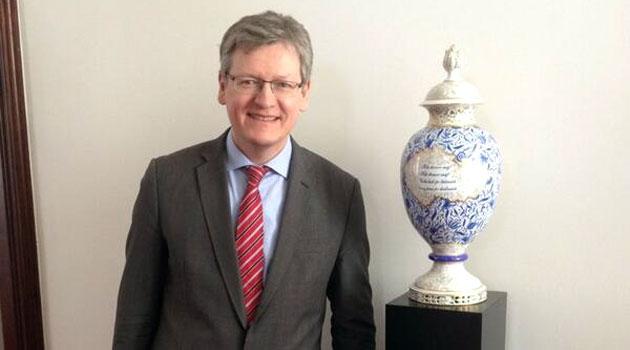Much more EU money to target Czech ghettos, social inclusion in future

Much more EU money than previously is slated for investment into the fight against poverty, into measures promoting social inclusion, and into solving the problems of ghettos in years to come. Moreover, individual programs managed by the Czech Education Ministry, the Labor Ministry, and the Regional Development Ministry may become more interconnected in order to improve their impact.
Czech Human Rights Minister Jiří Dienstbier (Czech Social Democratic Party – ČSSD) and the head of the Czech Government Agency for Social Inclusion, Martin Šimáček, met in Prague yesterday to discuss the issue with EU Commissioner for Employment, Social Affairs and Inclusion Lászlo Andor. There are currently 1.58 million inhabitants of the Czech Republic at risk of poverty and social exclusion.
Of that number, 128 500 do not have sufficient incomes, material amenities, or work. Be that as it may, the Czech Republic is still the EU country that is the best-off when it comes to poverty statistics.
On average about 25 % of EU citizens are at risk of exclusion and poverty compared to 15 % of Czechs. There are about 400 impoverished apartment building complexes and neighborhoods throughout the Czech Republic.
Such ghettos are predominantly inhabited by Romani people. Their total numbers may be around 80 000.
Adults in such communities are usually unemployed and the children often end up enrolling into "special" schools. During yesterday’s meeting, Andor reiterated that at least 20 % of the money from the European Social Fund is supposed to be spent on the fight against poverty and toward inclusion in the Member States during the new budget period.
Between 2007 and 2013 the Czech Republic could have received EUR 3.8 billion for such work. "We can, therefore, imagine how great of a sum could be available for social inclusion in future," Šimáček said.
According to the available information, the EU programs administered by various ministries in the Czech Republic should also become more interconnected. "It’s impossible to address just social housing without also addressing employment. The same can be said about each of these problems," Dienstbier said after the meeting with Andor.
The Government should approve draft programs for drawing on the funds by mid-year. Šimáček agrees that the flow of money should be more interconnected.
The Agency director believes that if "interventions in at-risk localities and places" are connected with one another so that measures are not taken in isolation, the aid will be more effective. Prior to traveling to Prague, Andor said the Czech Government’s priorities should be to enhance preschool education, improve the situation of the Romani minority, and support youth employment.
The Czech Republic has previously earned criticism for its approach toward Romani people and for a lack of preschool places. Dienstbier said no fundamental reservations were expressed during yesterday’s meeting.
"Naturally the European Union views several matters critically. We share that critical perspective. I did not note any fundamental discrepancy between us. Rather, we informed one another of the current positions of the Czech Government and the European Commission. As far it went there is rather a lot of agreement, there was a great deal of meeting of the minds," Dienstbier said.
The minister believes that the Government is aware that, for example, there is no law on social housing on the books and that it is necessary to overcome segregation in the schools. The cabinet is counting on drafting and adopting a social housing law, on instituting measures to support employment, and on amending the School Act.